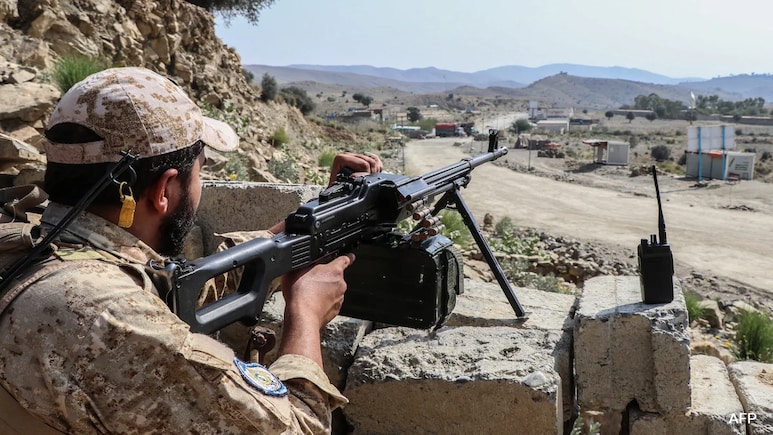
- Peace talks between Pakistan and Afghan Taliban in Istanbul collapsed amid mistrust and disunity
- Afghan side demanded guarantees against drone violations; Pakistan denied control over US drones
- Failure escalates risk of military conflict and marks a setback for regional stability and peace efforts
The much-anticipated peace talks between Pakistan and the Afghan Taliban in Istanbul have dramatically collapsed, plunging bilateral relations to a new low and leaving mediators from Qatar and Turkey stunned at the breakdown, sources have told NDTV. What was meant to be a step toward regional stability has instead exposed deep mistrust, disunity, and competing agendas, particularly over the issue of US drone operations and cross-border terror.
A Fragile Dialogue Unravels
According to multiple diplomatic sources, the Istanbul meeting began with cautious optimism. The agenda was reportedly finalised, with only one key issue left unresolved when the talks suddenly fell apart. Witnesses say the Pakistani delegation's behaviour deteriorated rapidly, marked by disorganisation, heated exchanges, and disrespect toward their Afghan counterparts and mediators.
The immediate trigger for the collapse appears to have been Pakistan's stunning admission, for the first time publicly, that it has an agreement with the United States permitting drone operations from its territory. Pakistani officials reportedly insisted that this pact "cannot be broken", a statement that provoked outrage from the Afghan side, which demanded assurances that Pakistan would not allow US drones to violate Afghan airspace.
When the Afghan delegation sought guarantees of non-interference, Pakistan initially appeared amenable. However, following an "unknown phone call" to senior officials from Islamabad, the Pakistani negotiators abruptly reversed their stance, declaring that they had no control over American drones or the activities of the Islamic State (Daesh). This backtracking, sources said, effectively derailed the meeting.
Mediators Stunned By Conduct
Qatari and Turkish mediators, who had invested significant diplomatic capital in facilitating the talks, were reportedly shocked by the Pakistani delegation's behaviour. One observer described the scene as "unprecedented in diplomatic circles", with the Pakistani representatives "losing composure and resorting to insults". The breakdown was so severe that one source called it "sabotage by design."
The head of the Pakistani team, identified as Major General Shahab Aslam, who is head of the Special Operations Division of the ISI, reportedly demanded that the Afghan Taliban "summon and control" all violent groups operating against Pakistan - including the Tehrik-i-Taliban Pakistan (TTP). The Afghan side countered sharply, noting that the TTP members are Pakistani nationals, not Afghans, and that it was beyond Kabul's authority to "control Pakistan's own citizens".
ISI's Major General Aslam is the same Pakistan Army officer who had been earlier accused of coordinating and monitoring the Pahalgam terror attack by Pakistan's Lashkar e Tayyiba terror group in India's Jammu & Kashmir, in which 26 innocent civilians were killed.
Clashing Security Demands
The Afghan representatives maintained that they are committed to ensuring no attacks on Pakistan originate from Afghan soil, reiterating the Islamic Emirate's official stance that the TTP issue is Pakistan's internal problem. In return, they requested that Pakistan guarantee the integrity of Afghan airspace and stop hosting or supporting US drone missions.
At one point, sources say, the debate escalated into a direct confrontation when Major General Aslam dismissed the drone issue as "off the table". The Qatari ambassador reportedly intervened, reminding him that Afghan concerns deserved to be heard. In a tense exchange, the Pakistani general retorted that American drones operate from a US airbase in Qatar and questioned why Doha did not halt them - to which the ambassador responded, "We have an agreement with the US" Major General Aslam's reply - "So do we" - effectively confirmed Pakistan's formal cooperation with US drone operations.
Fallout And Threats Of Retaliation
The failure of the Istanbul talks has not only frozen the peace process but also escalated the risk of military confrontation at the Af-Pak border. Afghan sources have warned that any future Pakistani strikes will be met with "reciprocal action", stating that if Afghan territory is bombed, "Islamabad will be targeted."
The Afghan side insists it attended the talks "in good faith", while accusing Pakistan of using the platform to shift blame and seek unrealistic concessions. Pakistani disunity, particularly between civilian officials in KPK and the powerful military establishment, appears to have crippled Islamabad's ability to negotiate consistently.
Meanwhile, analysts note that Pakistan's internal instability, its contentious relationship with Washington, and its controversial use of drones against both Afghan and Pashtun civilians have compounded mistrust.
A Regional Setback
The collapse in Istanbul represents not just a diplomatic failure but a setback for regional stability. The talks had been viewed as a rare chance to reset relations between the two neighbours, which share a long, porous, and often violent border. Instead, the meeting ended in acrimony and mutual recrimination, leaving the future of Pakistan-Afghanistan relations more uncertain than ever.
For now, dialogue appears to be off the table. Both sides are retreating into hardened positions and the mediators, caught in the crossfire, are left wondering if peace between Islamabad and Kabul was ever truly within reach.
Track Latest News Live on NDTV.com and get news updates from India and around the world

